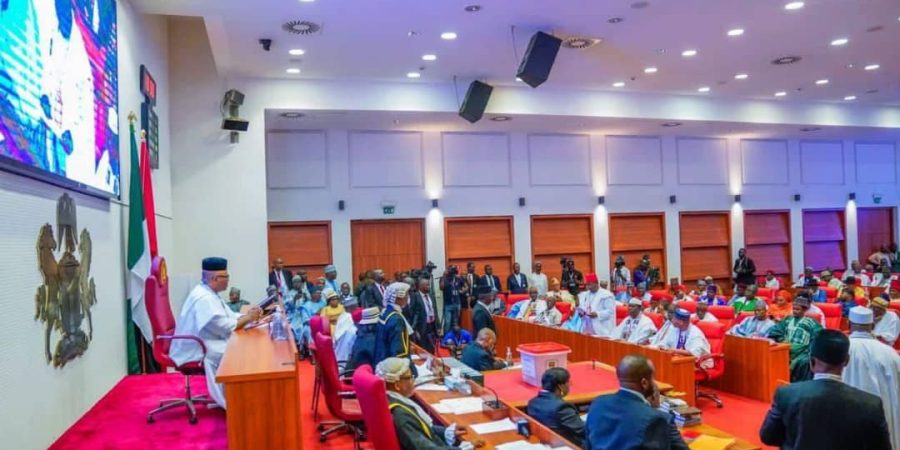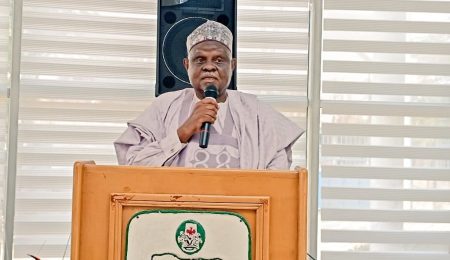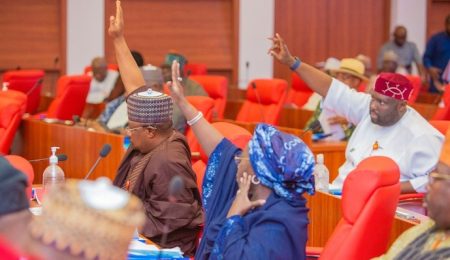As the 10th Senate marks its midterm anniversary, the upper chamber has outlined its key legislative priorities for the next two years – chief among them being electoral reform, constitutional review, and comprehensive judiciary restructuring.
In a statement commemorating the second legislative year of the 10th National Assembly, Senate Leader, Senator Opeyemi Bamidele, said the Senate had introduced a total of 983 bills – 506 of them in the 2024/2025 session alone – with 108 successfully passed into law between June 2023 and June 2025.
According to Bamidele, this milestone represents a significant legislative achievement, with a 232% increase in enacted bills compared to the previous session.
Bamidele said: “The 10th Senate has focused on stabilising Nigeria’s fiscal, monetary, and political environment through strategic legislative engagement. The legislative uptick is a testament to our commitment to national development.”
He listed landmark legislations such as the National Social Investment Programmes Act (2023), Student Loan (Access to Higher Education) Act (2024), National Minimum Wage Amendment Act (2024), Investment and Securities Act (2025), and the Regional Development Commission Establishment Acts (2025), among others.
Bamidele highlighted the Student Loan Act as a transformative tool for expanding access to higher education.
According to data from the Nigerian Education Loan Fund, over 1.09 million students have applied, with more than half already benefiting through tuition and upkeep loans.
Looking ahead, Bamidele assured Nigerians that electoral reform, constitutional amendment, and judiciary restructuring will dominate the Senate’s focus in the coming months.
“Our aim is to ensure that every vote counts and to boost voter confidence in the system. Electoral credibility is vital for democracy,” he said.
On judicial reform, Bamidele confirmed the existence of several pending bills targeting the appointment process, tenure, and welfare of judicial officers.
Senate Finance Chair: Tax Reform will Eliminate Multiple Levies
Meanwhile the Chairman, Senate Committee on Finance, Senator Sani Musa, has expressed the red chamber’s determination to support President Bola Tinubu’s comprehensive fiscal reform bills, describing them as critical steps toward eliminating structural inefficiencies, easing tax compliance, and attracting foreign investment.
Musa in an interview with journalists in Abuja at the weekend said: “We are confident these reforms will help Nigeria achieve a $1 trillion economy by the end of President Tinubu’s tenure.”
Musa, provided insight into the sweeping tax reform efforts championed by the Tinubu administration.
He revealed that the proposed fiscal legislation will harmonise Nigeria’s fragmented tax structure – reducing 73 different levies across federal, state, and local governments – and provide exemptions for low-income earners.
“If you earn less than one million naira annually, you are now exempt from personal income tax. This directly benefits low-wage earners and small business owners,” Musa said.
He also confirmed that existing VAT (7.5%) and corporate income tax (30%) rates will remain unchanged to maintain fiscal stability while enhancing compliance.
Musa said: “To improve revenue collection, all government income streams are now being channelled through a centralised system.
“We are closing leakages and plugging holes, especially in sectors like oil and gas, where inefficiencies have cost the country trillions,” he said.
Sunday Aborisade
Follow us on:



